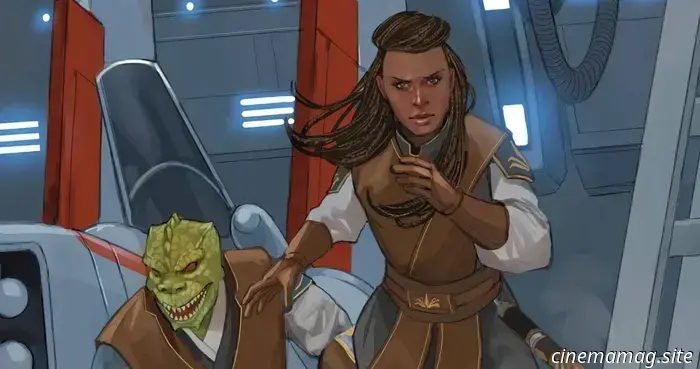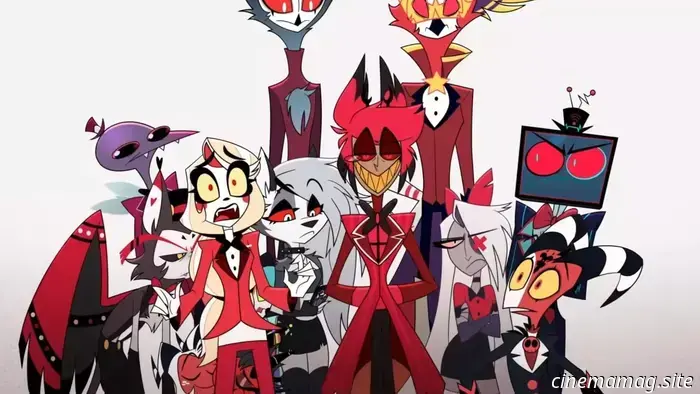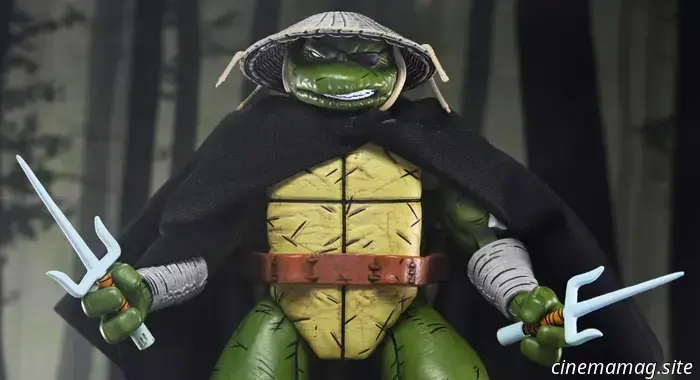-4K-Ultra-HD-Review.jpg)
Dirty Harry (1971) - 4K Ultra HD Analysis
**Dirty Harry, 1971.**
Directed by Don Siegel.
Starring Clint Eastwood, John Vernon, Andrew Robinson, Harry Guardino, John Mitchum, Ruth Kobart, Reni Santoni.
**SYNOPSIS:**
A psychopath named Scorpio wreaks havoc in San Francisco, prompting the police to send the no-nonsense officer ‘Dirty’ Harry Callahan to handle the situation.
Revisiting a classic film decades after its release can create a risk that it might not age well; the social issues and values it portrayed at the time may not resonate with today's world, and changing attitudes could render the film obsolete, merely a remnant of a different era. However, *Dirty Harry* proves otherwise.
Released as part of a collection featuring Clint Eastwood's notable films, this 4K UHD debut of arguably his most iconic role represents more than just a restoration of an old movie. Indeed, alongside this, his 1985 western *Pale Rider* is also celebrating its 40th anniversary with a polished package. As Eastwood approaches his mid-90s and continues to remain active, this presents an opportunity to reassess the film and consider why a violent cop movie from the 1970s remains relevant today.
One significant taboo this film challenged in 1971 was the portrayal of police as not always the 'good' guys. Before this, Hollywood consistently depicted cops as heroes and criminals as villains, with clear distinctions between the two. But just as Eastwood blurred motivations and behaviors in his spaghetti westerns—creating the iconic antihero of The Man with No Name and provoking the ire of the all-American hero John Wayne—he did the same for cop films here, turning the gruff, tough, and unpredictable Inspector ‘Dirty’ Harry Callahan into one of cinema's most intriguing and complex figures.
Callahan is the character we might not favor or want, yet he is the one we need as the justice system fails to safeguard innocent citizens from felons. This divide between law and justice is embodied by Scorpio, with Andrew Robinson delivering a fittingly whiny portrayal of the killer who clings to his rights. Harry, however, remains unconcerned about Scorpio’s rights, and despite having the suspect in custody, along with the murder weapon and witnesses, the court releases the killer due to insufficient evidence for a conviction.
When Harry has Scorpio injured and at gunpoint, Robinson abruptly shifts from threatening Harry to lamenting his own vulnerability, exemplifying the phrase ‘innocent until proven guilty’ as Harry applies pressure to the wound to extract a confession. While we know Scorpio is guilty, Robinson’s portrayal makes him so loathsome with his cries of "I know my rights!" that audiences may find themselves hoping Harry intensifies the pressure on that bullet wound. The film not only comments on the dynamic between cops and criminals but also reflects back on our own perceived mob mentality when confronting injustice.
Yet, considering it was released in 1971, how does it still resonate today? A quick look at social media can reveal countless modern-day Scorpios—not murderers, but individuals who ignite conflict and then portray themselves as victims when confronted. Is there a figure like Harry Callahan in our current times to protect us? That's a discussion for another time, but the reason we continue to support Harry—because we recognize he is fundamentally a good person—is what keeps us returning to this film. Additionally, with the perfect transition from the carefree 1960s to the grim and gritty 1970s—characterized by the increased sex, violence, and cynicism that permeated films during that period—the movie set a precedent for the action genre for the next decade, evident in the numerous Italian imitations that followed its release.
If you are considering this new edition of the film, you likely already know it well, so what has Warner Bros. done to warrant another viewing? For starters, the image quality is excellent. It retains the feel of a 1970s film, with numerous beige and brown tones, some graininess, but sharp edges and clear details, making the exterior shots of San Francisco stunning. There are instances of camera shake, slight blur, and peculiar lighting choices, but these have always existed and are part of the original material, so thankfully, no AI enhancements were applied.
The Dolby Atmos audio is appropriately aggressive and impactful, particularly when Lalo Schifrin’s funky, rhythmic score comes in or when Harry fires his .44 Magnum, but long-time fans will be pleased to discover that Warner has also included the original mono mix, which may not challenge your sound system but adds an element of authenticity, resulting in a more balanced audio experience. Each audio track has its advantages and drawbacks, so it comes down to personal preference, but it’s a nice touch that both are available.
The disc is packed with special features, including an audio
-4K-Ultra-HD-Review.jpg)
-4K-Ultra-HD-Review.jpg)
-4K-Ultra-HD-Review.jpg)
-4K-Ultra-HD-Review.jpg)
-4K-Ultra-HD-Review.jpg)
-4K-Ultra-HD-Review.jpg)
Other articles
 12 Timeless Films You Can Enjoy for Free Today
These classic films are also available for free streaming at home, without the need for a credit card or any other complications.
12 Timeless Films You Can Enjoy for Free Today
These classic films are also available for free streaming at home, without the need for a credit card or any other complications.
 Sideshow reveals the Premium Format Figure of Marvel's Moon Knight battling Werewolf By Night.
Sideshow and Marvel have unveiled their latest Moon Knight Premium Format figure, showcasing the Fist of Khonshu confronting Werewolf by Night. This Marvel collectible can be pre-ordered for $825; check it out here… A man endowed with lunar abilities faces off against another who has been altered by the moon! The figure stands at 23.5” (59.69cm) […]
Sideshow reveals the Premium Format Figure of Marvel's Moon Knight battling Werewolf By Night.
Sideshow and Marvel have unveiled their latest Moon Knight Premium Format figure, showcasing the Fist of Khonshu confronting Werewolf by Night. This Marvel collectible can be pre-ordered for $825; check it out here… A man endowed with lunar abilities faces off against another who has been altered by the moon! The figure stands at 23.5” (59.69cm) […]
 Star Wars: The High Republic – Fear of the Jedi #3 - Comic Book Sneak Peek
Marvel Comics’ Star Wars: The High Republic – Fear of the Jedi #3 releases on Wednesday, and you can check out a sneak preview of the issue below with the official preview… BLOCKADE OVER ERIADU! The lines are drawn as KEEVE TRENISS’ STORMWALL DEFENSE FLEET enters the battle against the NIHIL. Will Keeve stay true […]
Star Wars: The High Republic – Fear of the Jedi #3 - Comic Book Sneak Peek
Marvel Comics’ Star Wars: The High Republic – Fear of the Jedi #3 releases on Wednesday, and you can check out a sneak preview of the issue below with the official preview… BLOCKADE OVER ERIADU! The lines are drawn as KEEVE TRENISS’ STORMWALL DEFENSE FLEET enters the battle against the NIHIL. Will Keeve stay true […]
 El spin-off de Hazbin Hotel, Helluva Boss, llega a Prime Video con dos nuevas temporadas.
The Hellaverse, created by Vivienne Medrano, known for Hazbin Hotel and Helluva Boss, is set to grow significantly as Helluva Boss has been renewed for two additional seasons and will be available on Prime Video, with promises of crossovers with Hazbin Hotel. Helluva Boss centers on Blitzo (the o is silent), a hell-born imp who manages a small, chaotic assassination […]
El spin-off de Hazbin Hotel, Helluva Boss, llega a Prime Video con dos nuevas temporadas.
The Hellaverse, created by Vivienne Medrano, known for Hazbin Hotel and Helluva Boss, is set to grow significantly as Helluva Boss has been renewed for two additional seasons and will be available on Prime Video, with promises of crossovers with Hazbin Hotel. Helluva Boss centers on Blitzo (the o is silent), a hell-born imp who manages a small, chaotic assassination […]
 NECA's action figure collection for Teenage Mutant Ninja Turtles includes Old Man Raphael, Panda Khan, and Tattoo & Wyrm.
NECA has introduced three new figures to its Teenage Mutant Ninja Turtles action figure lineup: Old Man Raphael from Eastman & Laird’s TMNT Mirage comics, the comic character Panda Khan, and a Tattoo and Wyrm 2-pack inspired by the classic 1980s animated series; take a look at them here… Featured in the short story “Puma Blues” […]
NECA's action figure collection for Teenage Mutant Ninja Turtles includes Old Man Raphael, Panda Khan, and Tattoo & Wyrm.
NECA has introduced three new figures to its Teenage Mutant Ninja Turtles action figure lineup: Old Man Raphael from Eastman & Laird’s TMNT Mirage comics, the comic character Panda Khan, and a Tattoo and Wyrm 2-pack inspired by the classic 1980s animated series; take a look at them here… Featured in the short story “Puma Blues” […]
Dirty Harry (1971) - 4K Ultra HD Analysis
Dirty Harry, released in 1971, was directed by Don Siegel and features Clint Eastwood, John Vernon, Andrew Robinson, Harry Guardino, John Mitchum, Ruth Kobart, and Reni Santoni in its cast. SYNOPSIS: A sociopath called Scorpio wreaks havoc in San Francisco, prompting the police to assign the unyielding officer ‘Dirty’ Harry Callahan to handle the situation. Re-examining a classic film always carries certain risks [...]
